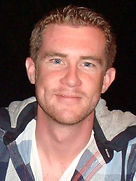top of page

Robert Millett's Professional Portfolio

Annotated Transcript
This is an annotated transcript of the courses I completed for my Master of Arts in Education degree (MAED). Below you will find a list of the courses along with my personal summary of the focus and purpose of each course.
Fall 2011
TE 855: Teaching School Mathematics
Instructor: Kevin Simpson
In this course we explored various facets of teaching mathematics. We analyzed our own experiences learning mathematics and compared it to what the new generation of learners needs to learn about mathematics. We analyzed and compared different professional documents for directing lesson planning including the NCTM Principles and Standards as well as the Common Core math curriculum. This course culminated in an action research project in our own classrooms. This course challenged me to start thinking more critically about the ways I am teaching my students and set the path for my shift in thinking during the MAED program.
Spring 2012
ED 800: Concepts of Educational Inquiry
Instructor: Dr. Steven Weiland
In this course we reviewed and reflected upon John Dewey’s philosophies of education and discussed Vivian Paley’s views on storytelling and fantasy in the education of young children. We reviewed the life-long learning patterns of a famous figure in history and I chose to personally research Benjamin Franklin’s patterns of educational inquiry. We studied the purposes of education through the views of Howard Gardner and also the ways the World Wide Web and hypermedia have changed and enhanced education and learning. This course challenged me to make an autobiographical inquiry into my own learning and this process helped me develop a better understanding the similarities and differences between myself and my students today.
Fall 2012
TE 846: Accommodating Differences in Literacy Learners
Instructor: Dr. Patricia Edwards
TE 846 provided experiences in assessing for and remediating literacy difficulties in students. We reviewed strategies for adapting for and accommodating struggling literacy learners as well as strategies to motivate these learners. We studied different literacy aspects such as comprehension, vocabulary, fluency, word recognition, and writing. The course culminated in a literacy learner analysis project in which we were able to apply the assessment tools and remediation strategies we studied.
Spring 2013
CEP 805: Learning Math with Technology
Instructor: Dr. Ralph Putnam
In this course we studied the different ways students learn mathematics. We discussed Richard Skemp’s ideas of relational versus instrumental mathematics and the implication for learning and teaching math. We reviewed the National Council of Teachers of Mathematics technology standards and discussed how technology can and should change the way students learn mathematics such as algebra, geometry, data and probabiity, and problem solving. The course allowed us to create an online mathematics tool box which serves as a library of different online learning tools for mathematics.
Spring 2014
TE 818: Curriculum in its Social Context
Instructors: Dr. Lynn Fendler and Eugjung Jin
In this course we studied the history of education and how it has developed and changed based on the social contexts. We reviewed conflicting purposes of education, the history of curriculum in the US, and the development and consequences of high stakes testing among other themes. We developed and expanded upon our understanding of what is curriculum to mean more than just what is taught in schools but also to be the rules, values, and routines we teach our students and how our personal beliefs affect the way we implement these different curricula. We book studies in small groups and my group studied Pasi Sahlberg’s Finnish Lessons and we compared the curricula of Finland to that of the United States.
Summer 2014
TE 861C: Action Research in the K-12 Science and Mathematics Classrooms
Instructor: Sarah Stapleton
In TE 861C we learned about the different parts of the process for completing meaningful action research in our classrooms. We started the course by identifying a problem or question we wanted to answer about our students and over the course of the semester we studied the different steps to completing the action research such as making a literature review, data collection, interpreting data, and developing an action plan. We understood action research as a cyclical process and not just a one time study. I reviewed the problem of low homework compliance in my 7th grade math classes and possible strategies to remediate the issue. Unknowingly, this research project in combination with the themes I would learn the following semester in CEP 802 would have a large impact in how I create and grade daily math assignments today.
Fall 2014
CEP 802: Developing Positive Attitudes Toward Learning
Instructors: Dr. Evelyn Oka and Taylor Hicks
This course involved an intensive look into various types of student motivation. Through the creation of a motivational design project, in a small group we studied and applied different cognitive, behavioral, and intrinsic motivational strategies to specific motivational cases in each of our educational settings. We also used extensively Carol Ame's TARGET famework to assess and modify our instructional strategies in order to promote motivation to learn. This course helped me realize the ways I was inadvertently promoting competition and fixed ability orientation rather than mastery learning and incremental mindset towards intelligence.
TE 831: Teaching School Subject Matter with Technology
Instructor: Dr. Doug Hartman
This course focused on the theory and practice of integrating technology with teaching. A main point of interest was using Dr. Punya Mishra and Dr. Matthew Koehler’s knowledge framework called Technological Pedagogical Content Knowledge (TPACK). We discussed how we can blend our knowledge of pedagogy, content area, and technology to improve our instruction. One impactful study we made during the semester was the process of repurposing technology for learning. We can use any technology to enhance student learning if we think creatively about how to integrate its use.
Spring 2015
ED 870: Capstone Seminar
Instructor: Dr. Matthew Koehler
This course helped me to develop an online professional presence. We were introduced to web design strategies and worked throughout the semester to develop an online professional portfolio displaying our growth and achievements during the Michigan State Educational Master’s program. Our portfolios displayed our professional resumes, showcase of our work and achievements, as well as allowed us to reflect upon and process the educational journey of our master’s program. This course also challenged me to create a plan for the future of my learning in order to push me to continue my professional learning once the master's program is complete.
Fall 2015
CEP 818: Creativity in Teaching and Learning
Instructor: Dr. Punya Mishra
This course provided an exploration of 13 thinking tools of highly creative people as presented in the book Sparks of Genius by Robert and Michele Root-Bernstein. Throughout the course we explored the notion that creativity is not an innate trait with which we are born but rather a skill that can be developed. By providing students with opportunities to demonstrate thinking in non-standard ways and process new ideas from different perspectives we can enrich their education and prepare them for the diverse demands of the 21st century. This course challenged my view that I was not a creative person by broadening my definition of creativity and providing me with tools through which to cultivate my own creativity.
bottom of page